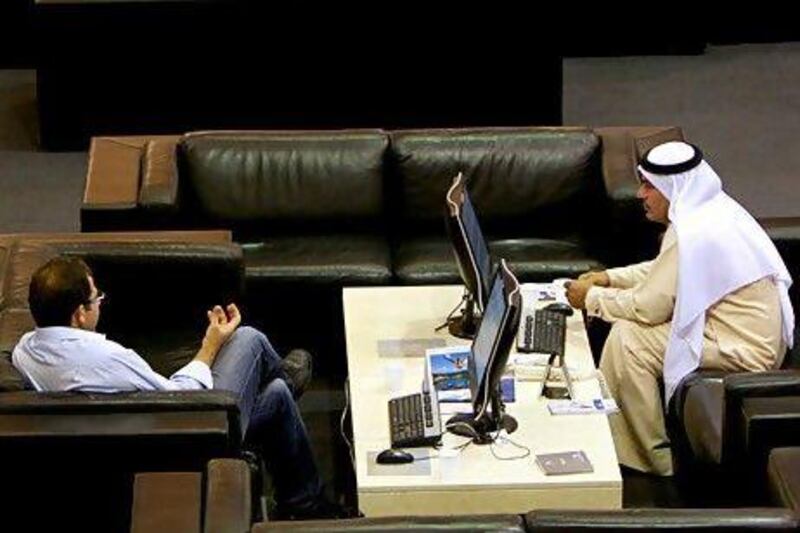The Dubai Financial Market (DFM) will allow stocks to fluctuate more widely in an effort to promote more trading on the bourse.
The exchange said today that beginning January 2 all shares will be able to increase as much as 15 per cent in one day, and fall by a maximum of 10 per cent. The bourse's previous rules made a distinction between "active" and "non-active" shares, with different fluctuation limits for each category.
"The new rules will enhance trading on the current non-active stocks," the bourse's chief executive officer, Essa Kazim, said in a statement.
Under the old rules, non-active shares could only rise and fall as much as 5 per cent in a single trading session.
Some larger companies on the exchange, including Emirates NBD and Shuaa Capital, were qualified as non-active shares based on recent trading activity. The new rules will allow trading to continue until in those shares until they reach the new limits, which could increase volatility but encourage further trading.
"Opening these limits will increase the risk of unjustified drops or rises in price when a single entity is attempting to enter or exit their position," Saad al-Chalabi, institutional trader Al Ramz Securities in Abu Dhabi, said in an e-mail to Bloomberg. "The market is opening up these limits to encourage liquidity in those names when they do fluctuate abruptly."
The DFM has seen trading volumes drop more than half this year, and regulators have introduced a handful of new measures in recent weeks to boost liquidity. The Securities and Commodities Authority said last week that it would allow margin trading in all publicly-traded UAE stocks.
Margin trading allows a trader to borrow money from a broker to buy a stock, using other stocks as collateral. There has also been discussion about allowing expanded short selling, which occurs when investors borrow and sell an asset hoping to profit by buying it back later for less.
The Dubai's other bourse, NASDAQ Dubai, allows short selling but DFM and the Abu Dhabi Securities Exchange currently do not.
breagan@thenational.ae






